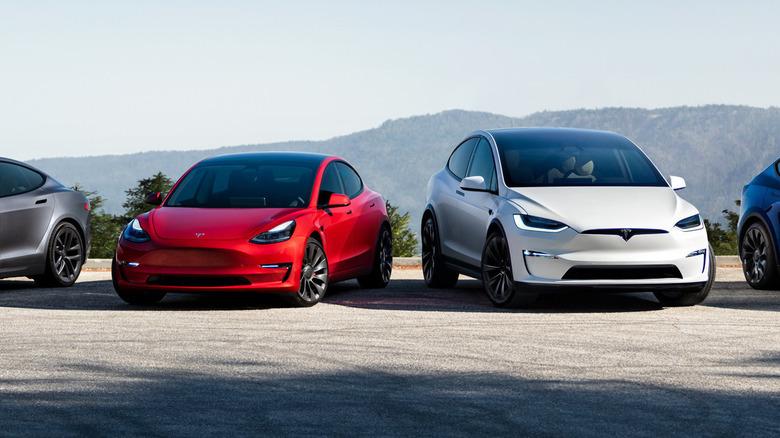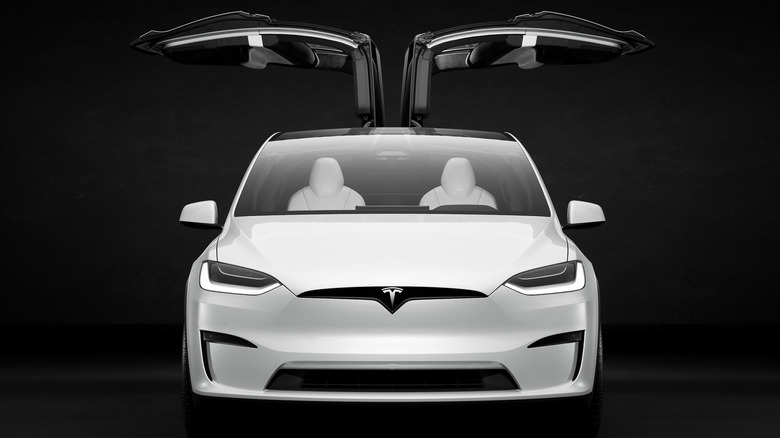Tesla Just Bumped Up Prices On Every Car Except The Model 3
In a seemingly limitless series of price adjustments over the last few years, electric automaker Tesla just announced that its Model S, X, and Y vehicles sold in the United States are getting more expensive. Noticeably absent from the price hike is Tesla's most affordable vehicle, the Model 3. If there's such a thing as good news when it comes to higher prices, it's that the increases only amount to a small 0.5% to 1.1% of the vehicles' purchase prices.
As reported by Reuters, that translates to a new base price of $88,490 for the Model S sedan and $98,490 for the Model X SUV. In spite of the difference in price of the base models, the performance versions of both the Model S and X are priced identically at $108,490. The brand's popular Model Y, a compact crossover SUV, ratchets up to $47,490 for the base model, $50,490 for the long range model, and $54,490 for the performance variant.
As a consolation for the modest price jump, Tesla is offering lower interest rates though its internal financing department. According to the company's website, rates as low as 3.99% are available.
Prices are still lower than six months ago
Tesla, which has traditionally been recognized by investors for its healthy profit margins among EV producers, now faces increased competition from legacy automakers — both domestically and abroad. Even after the just-announced price increases, the base price of Tesla's Model S, X, and Y lineup is still 16% to 23% less expensive than at the beginning of 2023.
This comes on the heels of other Tesla news that the brand is recalling 1.1 million vehicles in China, as an over-the-air update to its regenerative braking systems has reportedly caused several accidents. At the same time, a press release announced that the brand's premium Model S and Model X will now be available for sale in Japan for the first time ever.
Interestingly, only left-hand drive Tesla vehicles will be shipped to Japan, whose vehicles are typically right-hand drive. This idiosyncrasy might not hurt sales very much, however: Japan Motor reports that LHD vehicles are often considered status symbols among the Japanese.

